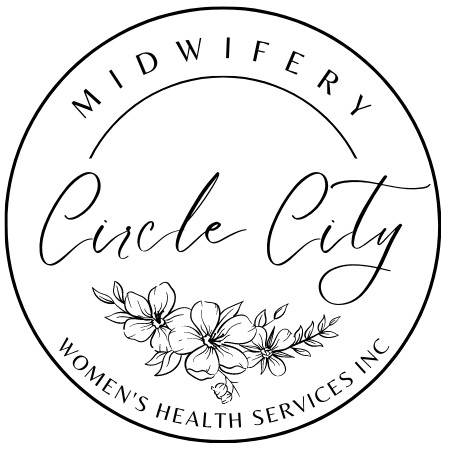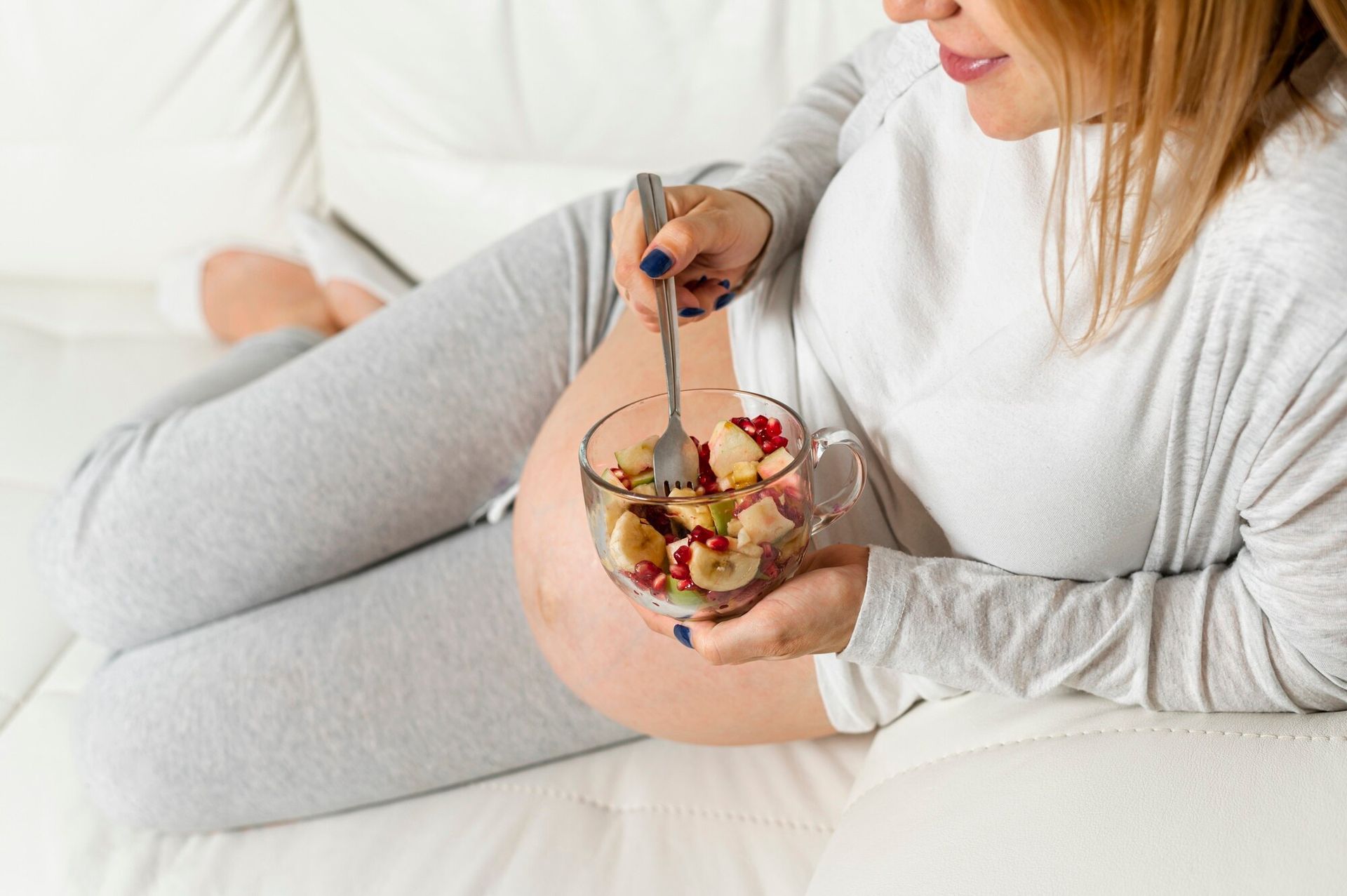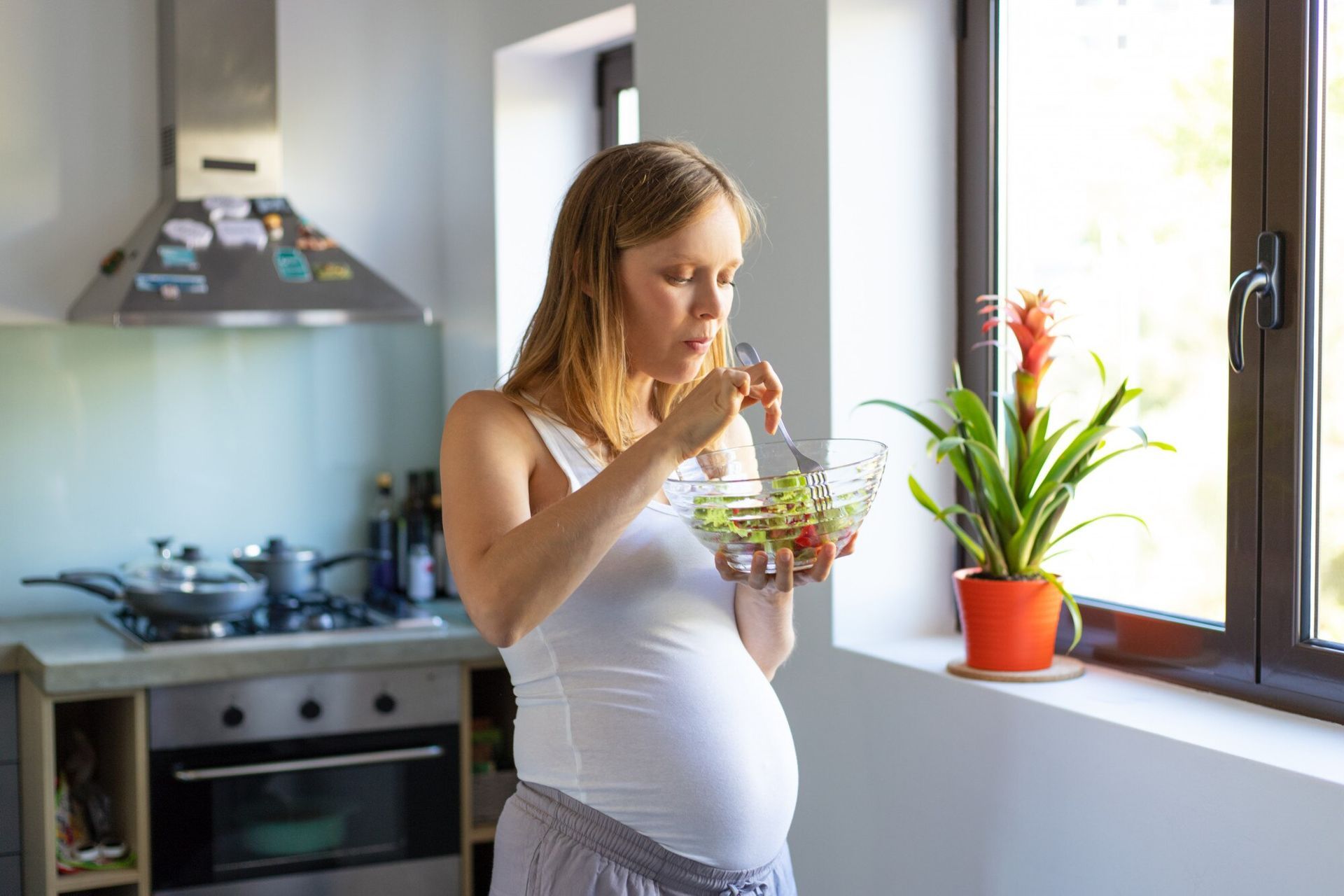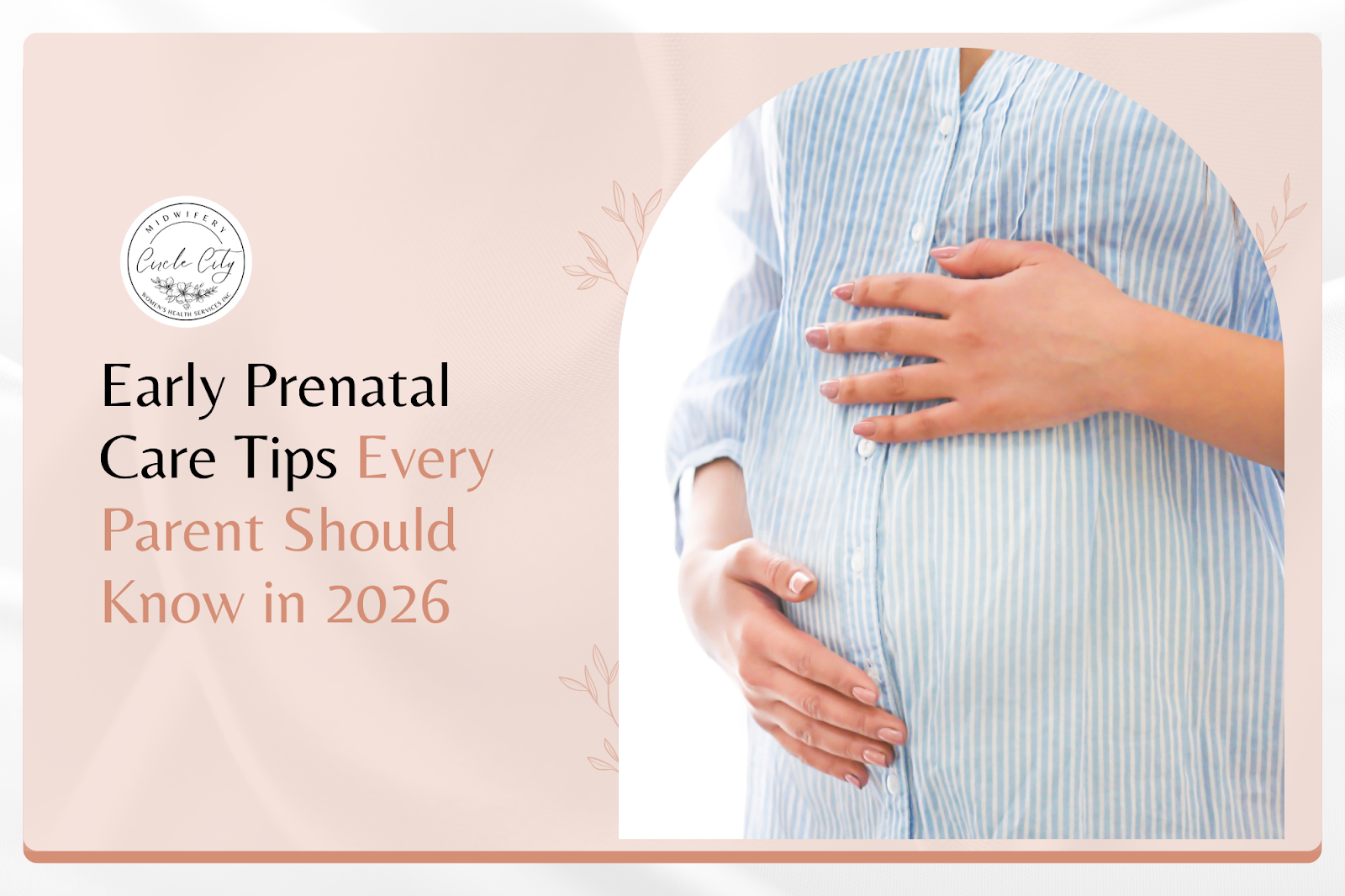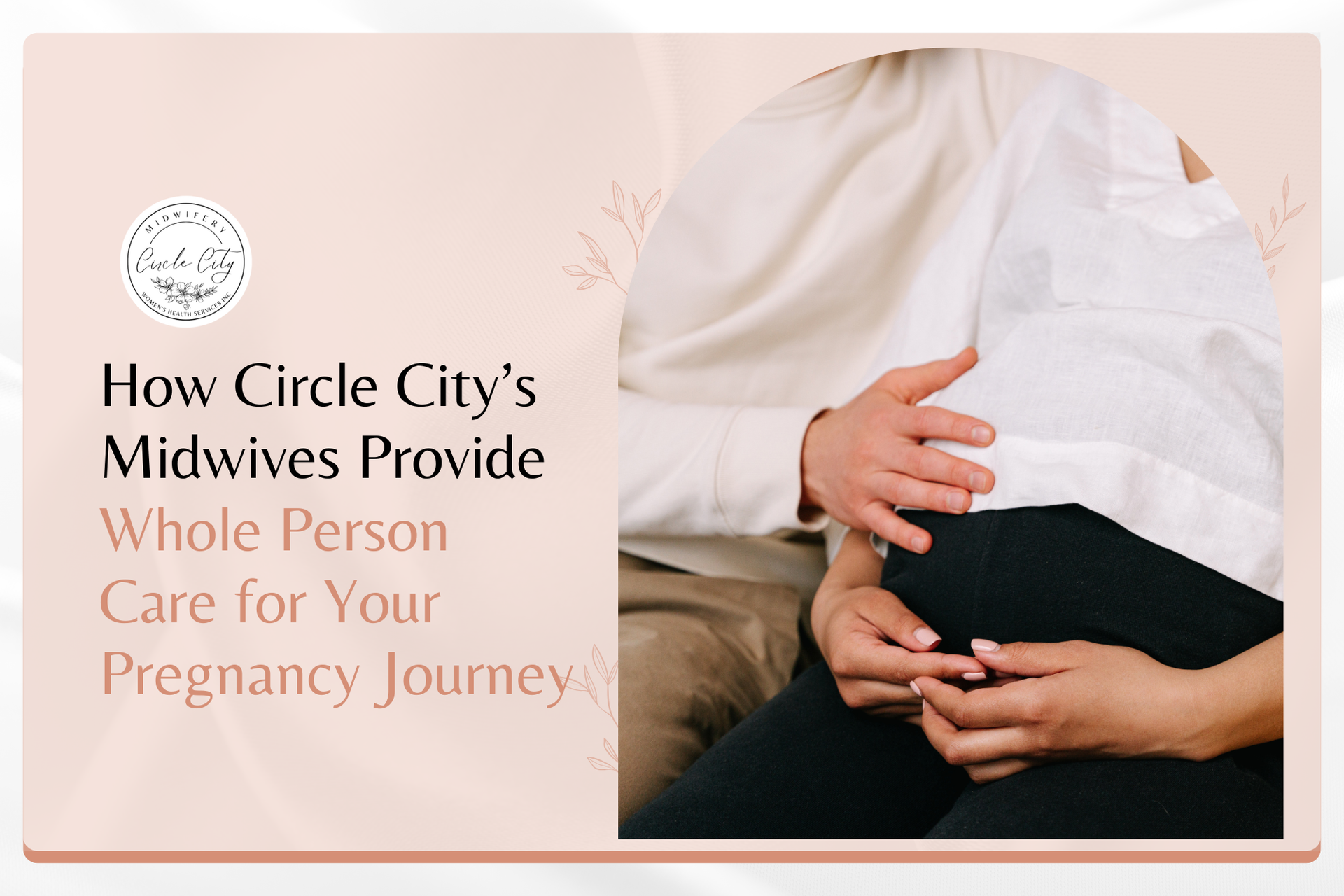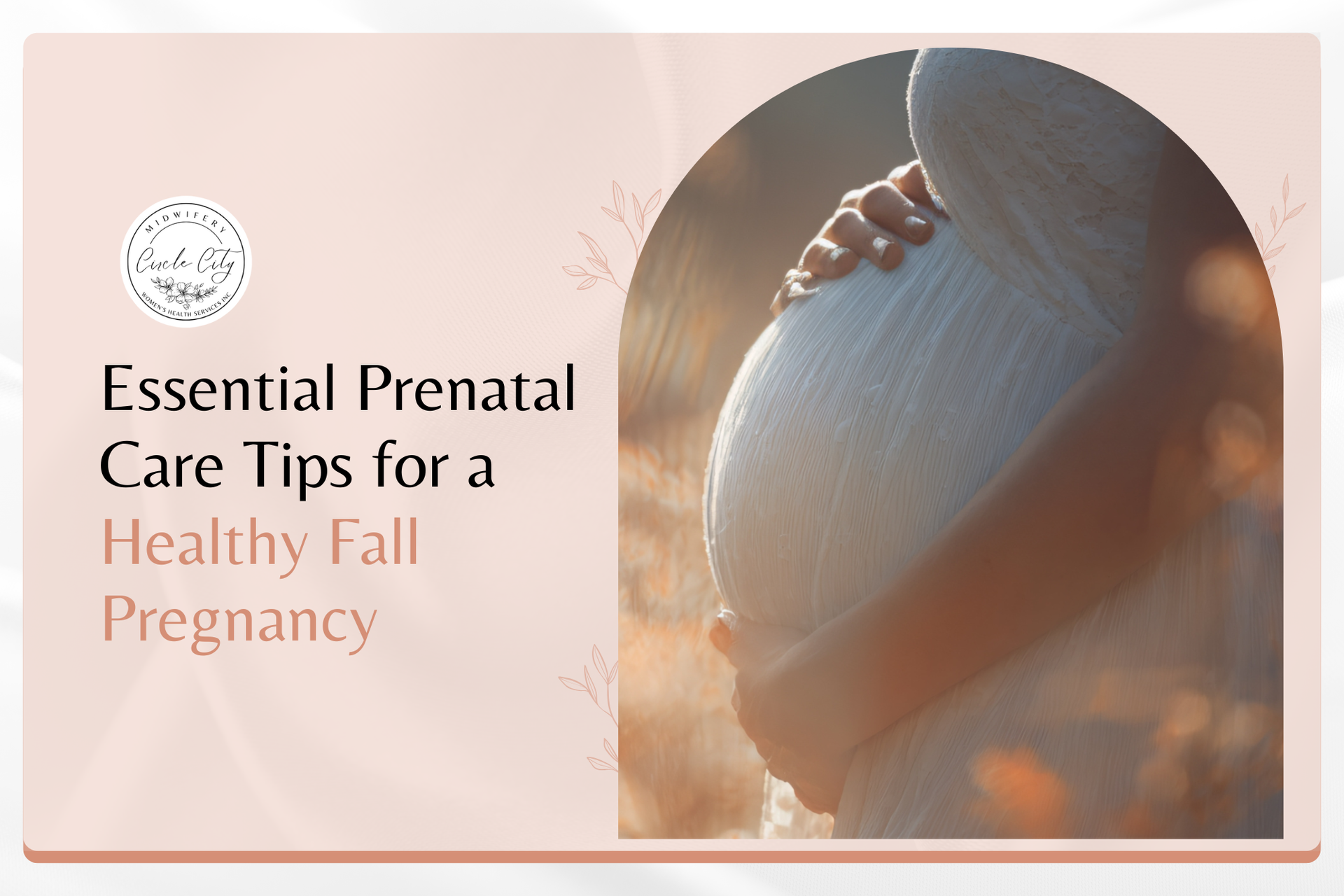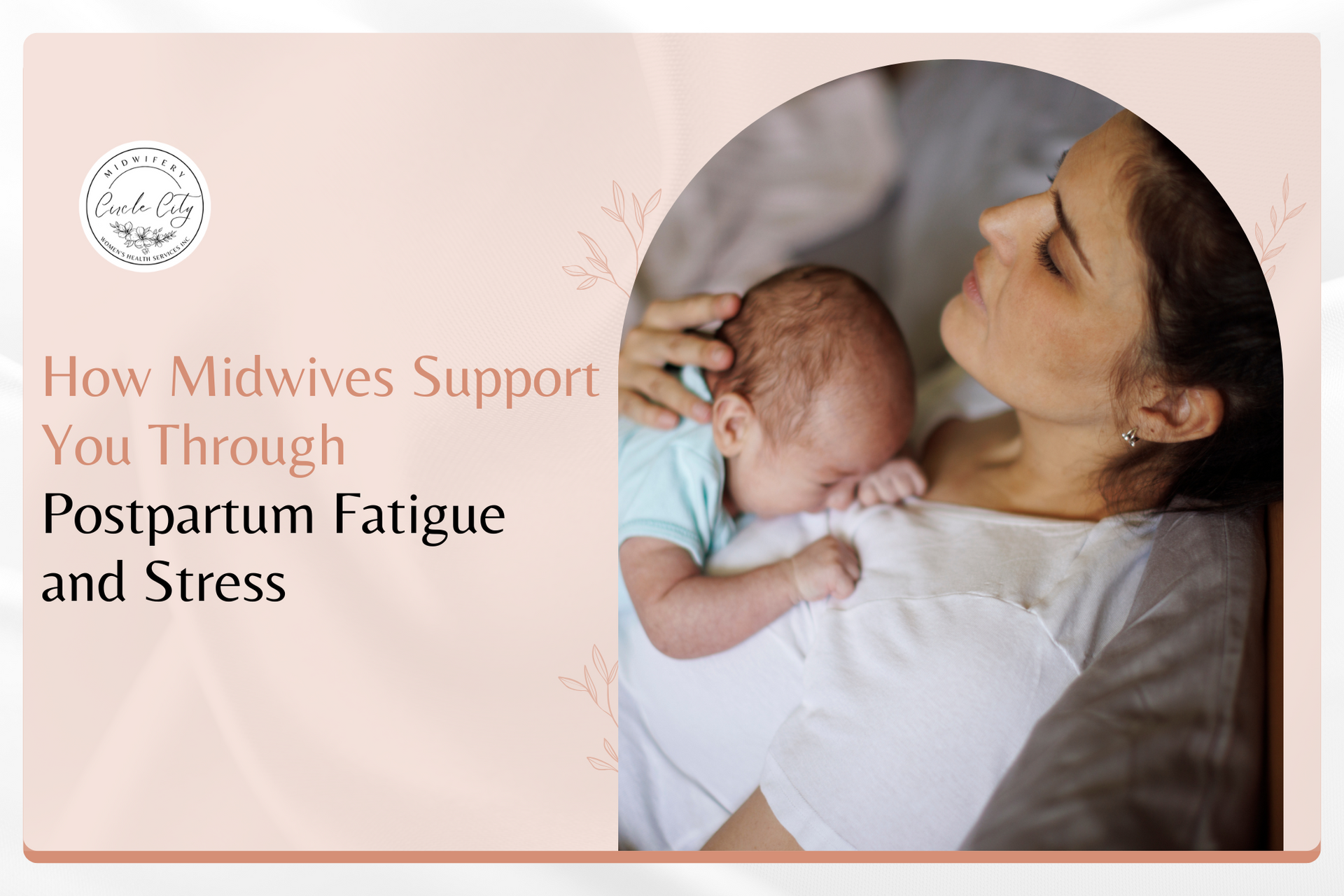Pregnancy brings joy, excitement, and a lot of questions about food! With all the advice out there, it’s natural to feel overwhelmed. After all, your diet now affects both you and your growing baby.
Good nutrition during pregnancy lays the foundation for your baby’s health. Every meal you choose provides essential nutrients that support your baby's development while helping you stay energized and healthy. Studies show that a balanced, healthy pregnancy diet can reduce the risk of complications and contribute to your baby’s long-term health.
We know this sounds daunting, but don’t worry! Eating well doesn’t mean overhauling your diet or feeling guilty about every choice. What’s more, you don’t have to navigate this journey alone. We’re here to guide you through the essential pregnancy diet do’s and don’ts, offering support as you nourish yourself and your little one.
Simplify Your Pregnancy Nutrition
Why Pregnancy Diet Matters
Eating the best foods for pregnancy is essential to ensure you and your baby get the right nutrients for a healthy gestation period.
Alongside a balanced diet, regular prenatal checkups play a crucial role in monitoring both maternal and fetal health. These visits help track your baby’s growth, detect potential complications early, and provide essential guidance on nutrition, ensuring a healthier pregnancy and smoother delivery.
Key Nutrients in Pregnancy
- Folate prevents neural tube defects, ensuring healthy brain and spinal cord development.
- Iron supports red blood cell production and prevents anemia.
- Calcium strengthens your and your baby’s bones.
- Omega-3 fatty acids promote brain development and cognitive function.
- Vitamin D aids calcium absorption and supports bone health.
- Reduced Risk of Complications:
Informed dietary choices help lower the chances of gestational diabetes, preeclampsia, and preterm labor.
- Increased Energy:
A well-balanced diet helps combat fatigue, energizing you throughout the day.
- Healthy
Fetal Development:
Nutrient-rich foods provide the essentials for your baby’s growth, from organs to the brain.
- Stronger Immunity:
Healthy foods boost your immune system, reducing the risk of illnesses.
The Do's: Nutritional Powerhouses to Embrace
A healthy pregnancy starts with making the right food choices and maintaining balanced habits. From key nutrients to hydration, here’s what you should focus on to ensure both you and your baby thrive.
1. Lean Proteins
Proteins are vital for your baby’s growth and your muscle health.
- Best sources:
Chicken, turkey, eggs, and fish low in mercury (e.g., salmon, cod).
- Plant-based options:
Beans, lentils, tofu, and quinoa for vegetarians and vegans.
2. Whole Grains
Whole grains provide lasting energy and are high in fiber to prevent constipation.
- Great choices:
Oatmeal, brown rice, whole-wheat bread, and quinoa.
3. Fruits and Vegetables
Rich in vitamins, minerals, and antioxidants, fruits and veggies are good for you and your baby.
- Variety is key:
Leafy greens (spinach, kale), citrus fruits (oranges, lemons), and colorful vegetables (bell peppers, carrots, tomatoes).
4. Dairy and Calcium-Rich Foods
Calcium supports your baby’s developing bones and teeth while maintaining your bone health.
- Include:
Milk, cheese, yogurt, and fortified plant-based options like almond or soy milk.
5. Hydration
Hydration supports nutrient absorption and blood circulation while reducing swelling.
- Count your glasses:
Aim for 8 to 10 glasses of water daily.
- Alternatives:
Herbal teas like ginger or chamomile (check with your healthcare provider first).
The Don'ts: Foods to Avoid and Why
During pregnancy, some foods and drinks can harm your health and baby’s development. Here are the foods to avoid during pregnancy and why:
1. Raw or Undercooked Meat and Eggs
- Risk: Harmful bacteria like salmonella and toxoplasmosis.
- Avoid: Rare steaks, sushi with raw fish, and runny eggs.
- Safe option: Cook meats to 165°F and ensure eggs are fully cooked.
2. High-Mercury Seafood
- Risk: Mercury can harm your baby’s developing nervous system.
- Avoid: Swordfish, shark, king mackerel, and tilefish.
- Choose instead: Low-mercury fish like salmon, cod, or shrimp (limit to 2–3 servings per week).
3. Unpasteurized Dairy and Juices
- Risk: May contain listeria, which can lead to serious complications.
- Avoid: Soft cheeses (brie, feta, blue cheese) and unpasteurized juices.
- Safer alternative: Pasteurized milk, cheese, and 100% juices.
4. Processed and Deli Meats
- Risk: Possible contamination with listeria and high sodium levels.
- Avoid: Cold cuts, hot dogs, and deli meats unless heated until steaming.
- Opt for: Freshly cooked proteins for a safer choice.
5. Caffeine and Alcohol
- Risk: Caffeine and alcohol can impact your baby’s growth and development.
- Caffeine: Limit to 200 mg daily (about one 12-ounce coffee).
- Alcohol: Avoid entirely—no amount is known to be safe.
6. Highly Processed and Sugary Foods
- Risk: Empty calories may lead to unhealthy weight gain or gestational diabetes.
- Examples to skip: Chips, candies, sodas, and sugary pastries.
- Better snacks: Fresh fruits, nuts, yogurt, or whole-grain crackers.
Expert Tips for Managing Cravings and Safe Substitutions
Cravings are common in pregnancy, but they don’t have to derail your healthy eating habits. Here are some expert tips for managing cravings and making safer food choices:
- Satisfy
Sweet Cravings:
Instead of eating sugary treats, try satisfying your sweet tooth with fresh fruits like berries or a piece of dark chocolate.
- Healthy Salty Snacks:
For a crunchy, salty fix, swap chips for nuts, air-popped popcorn, or roasted chickpeas.
- Opt for Safe Dairy:
If you’re craving soft cheeses, choose pasteurized options to reduce the risk of listeria.
Remember, you have to balance cravings with choices that support your health and your baby’s growth. If cravings feel overwhelming and you’re unsure what’s safe to munch on, don’t hesitate to reach out to your healthcare provider or
midwife for guidance and personalized advice.
FAQs About Pregnancy Diet
Here are some frequently asked questions about pregnancy diet that can help clear up any confusion:
- Can I eat a deli sandwich?
Deli meats can carry listeria, so either heat them thoroughly or choose vegetarian alternatives like hummus.
- Is it safe to drink coffee?
Limit caffeine to 200mg daily, or consider herbal teas or decaf coffee.
- What foods should I avoid to prevent heartburn?
Avoid spicy foods, citrus, chocolate, and fried foods. Instead, go for oatmeal, bananas, and cooked veggies.
- Can I eat sushi or other raw fish?
Avoid raw fish and choose sushi made with cooked ingredients.
- Is it okay to eat soft cheese?
Only eat pasteurized soft cheeses or opt for hard cheeses.
- How can I manage pregnancy cravings for junk food?
Choose healthier alternatives like baked snacks or fresh fruits.
Your Path to a Healthy Pregnancy
Pregnancy is a complex yet fulfilling journey, and your diet plays a significant role in keeping both you and your baby healthy through it all. Remember, it’s not about perfection but balance, moderation, and variety. The goal is to nourish your body with the right foods that help you feel your best and support your baby’s growth.
If you ever feel uncertain or just want some extra guidance along the way, we’ve got your back at
Circle City Midwifery! Always remember that you’re not alone, and we’re here for you as we were with the many parents we supported throughout the years. Together, we ensure you and your baby get the care and nourishment you both deserve.
Nourish Your Pregnancy Journey


